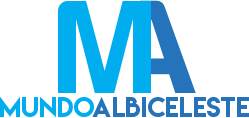Hello everyone,
Since the start of the new year, we have been experimenting with different ads and locations across the Mundo Albiceleste website. And if we are being completely honest, it was time for a permanent change.
We have also been hearing and reading all of your feedbacks and are happy to announce what we believe are significant changes. The number of ads on the website have been reduced (we believe significantly) and ultimately, while the ads do help in keeping up with the maintenance of the website, we still want every one to enjoy viewing and reading the content.
Mundo Albiceleste was built by Argentina fans and for Argentina fans, which is why we believe that should remain the priority and will remain the priority.
Should you have any comments or suggestions, please, do let us know in the comments below or email us at mundoalbiceleste10@gmail.com. Our aim is to continue to improve and to provide more content (which we will continue to be doing and will be introducing new sections throughout the year) than we ever have before. And to aim for quality over quantity.
As always, your feedback is strongly appreciated. Mundo Albiceleste has been around since 2006 and we would not be where we are without the Mundo Albiceleste family.
Thank you,



